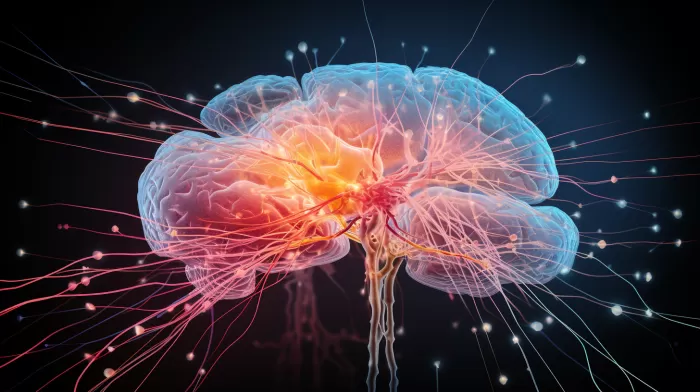Chronic back pain is not only physically debilitating, but did you know that it can also shrink your brain by up to 11 percent? That’s the equivalent of aging your brain by up to 20 years!
Research conducted at Northwestern University has shown that for each year you continue to suffer from constant, chronic back pain, you may lose 1.3 cubic centimeters of the part of your brain responsible for memory and processing information. The study, which was published in The Journal of Neuroscience, discovered that unrelenting pain lasting more than six months can lead to destructive chemical changes in brain tissue. However, the scientists were not able to determine whether the decrease in brain size was reversible if the pain could be stopped.
Understanding Chronic Back Pain
Before delving into the impact of chronic back pain on the brain, it’s essential to understand what it really is. Chronic back pain is defined as persistently painful and lasts for 12 weeks or longer, even after the underlying cause of the pain (such as an injury) has been treated. It can stem from a variety of reasons, such as muscle strain, slipped discs, sciatica, and more.
Chronic back pain is a prevalent issue, affecting millions of people worldwide. According to the National Institutes of Health, about 80 percent of adults experience low back pain at some point in their lives.
Why Chronic Back Pain Harms Your Brain
Chronic pain can be both mentally and emotionally taxing. As such, it’s not entirely surprising that it can also negatively impact brain function.
When you experience pain, it sends signals to your brain, which then processes the information and interprets it as a painful sensation. With chronic pain, this process is consistently active, which can result in chronic pain sufferers experiencing a constant state of sensory overload.
Moreover, when in pain, the body also releases cortisol – also known as the stress hormone. Over time, as pain persists, the constant release of cortisol can lead to inflammation throughout the body, including the brain. This inflammation may then contribute to a decrease in brain size and function.
Other Factors That Can Affect Your Brain
In addition to chronic back pain, there are several other factors that can negatively impact your brain and cognitive function. These factors include:
- Stress: Prolonged stress can lead to higher cortisol levels and reduce the size of the hippocampus – the part of the brain responsible for memory and learning.
- Lack of sleep: A consistent lack of sleep can affect memory, attention, and decision-making abilities.
- Poor diet: Diets high in unhealthy fats, sugar, and processed foods can increase inflammation, hindering cognitive function.
- Lack of exercise: Physical activity has been shown to improve cognitive function and overall brain health. A sedentary lifestyle can result in brain atrophy and reduced mental capabilities.
How to Improve Brain Function
For individuals suffering from chronic back pain and the potential negative effects on brain function, there are several steps you can take to help improve cognitive health:
- Get proper treatment: First and foremost, addressing the underlying cause of chronic back pain is crucial. This may involve seeking the help of a medical professional to find the most effective treatment options for your specific condition.
- Engage in regular physical activity: Incorporating physical activity into your daily routine can benefit not only your physical health but also your cognitive health. Exercise increases blood flow to the brain, supports the growth of new neurons, and helps reduce inflammation.
- Eat a brain-healthy diet: Consuming a diet rich in fruits, vegetables, lean proteins, whole grains, and healthy fats such as omega-3 fatty acids can support optimal brain function.
- Prioritize sleep: Ensure you get the recommended 7-9 hours of sleep per night. Maintaining a consistent sleep schedule and following good sleep hygiene practices can support healthy brain function.
- Stress management: Incorporate relaxation techniques, such as meditation, deep breathing exercises, or yoga, into your daily routine to help reduce stress and the resulting negative impacts on your brain.
In conclusion, chronic back pain can have significant detrimental effects on your brain function, potentially aging your brain prematurely. Addressing the root cause of your chronic back pain and incorporating healthy lifestyle changes to promote brain health is essential to maintaining optimal brain function and overall well-being.



